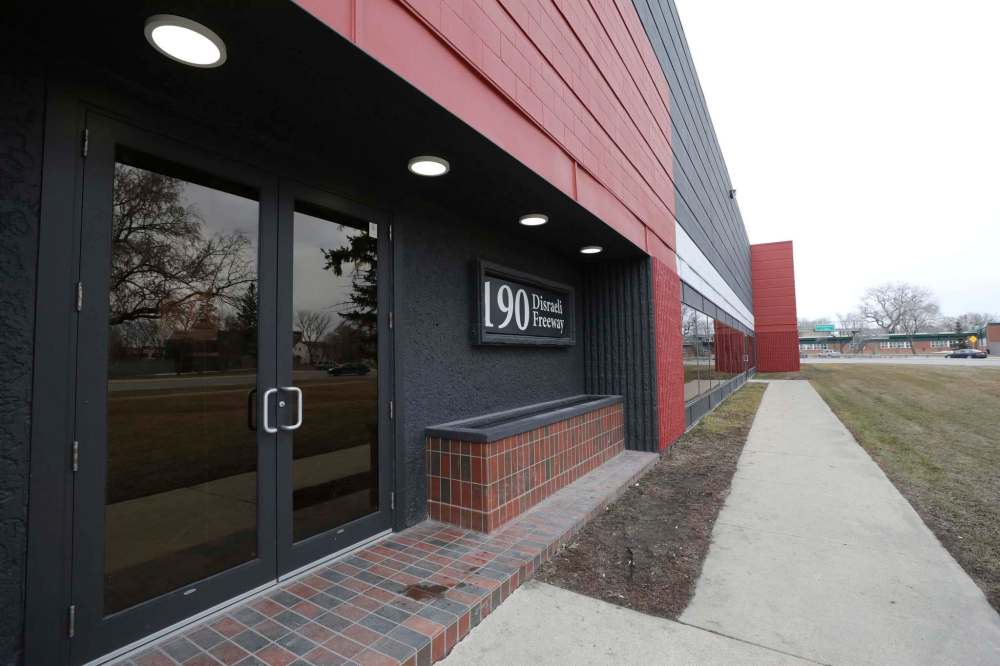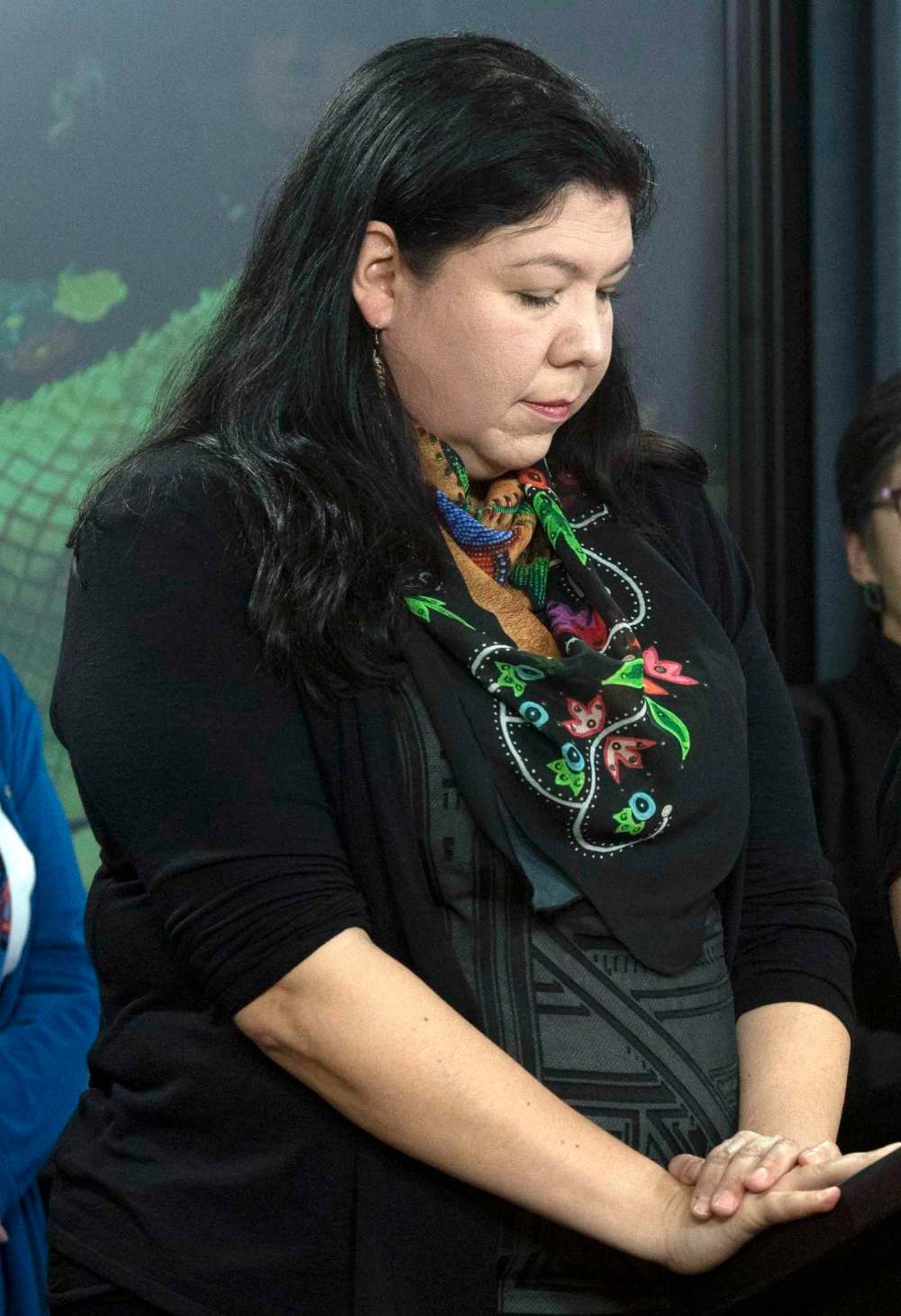Tales of reconciliation in a dangerous time
Advertisement
Read this article for free:
or
Already have an account? Log in here »
To continue reading, please subscribe:
Monthly Digital Subscription
$19 $0 for the first 4 weeks*
- Enjoy unlimited reading on winnipegfreepress.com
- Read the E-Edition, our digital replica newspaper
- Access News Break, our award-winning app
- Play interactive puzzles
*No charge for 4 weeks then billed as $19 every four weeks (new subscribers and qualified returning subscribers only). Cancel anytime.
Read unlimited articles for free today:
or
Already have an account? Log in here »
Hey there, time traveller!
This article was published 28/05/2020 (1426 days ago), so information in it may no longer be current.
In the opening days of the novel coronavirus pandemic, True North Sports and Entertainment Ltd. executive chairman Mark Chipman called Rick Lees, executive director of Main Street Project, with an idea.
Since the summer of 2019, Chipman has been spearheading a $40-million initiative to create a multi-level addictions facility at 190 Disraeli Freeway, an empty warehouse in the heart of the Winnipeg’s shelters and tent city. (The building is owned by Dennis Levy and is the former home of Levy’s Leathers Ltd., which specializes in guitar straps and bags.)
“Mark asked if the building could help,” Lees says. “I told him we needed more safe shelter spaces where people could socially distance, particularly for Indigenous women.”
Chipman brokered a relationship between Lees and Levy, who is retired and now lives in British Columbia.
“Despite not knowing me — and going on Mark’s word alone — Levy sent Main Street Project the keys for the building,” Lees says. “I was blown away.”
Main Street Project contacted the province and quickly received funding to renovate the building. The federal government donated 200 cots. In the span of a few weeks, regularly-sanitized showers, sinks and bathrooms amongst 200 beds with dividers and spread six-feet apart became available to protect Winnipeg’s homeless.
“We have one floor for women and one for men,” Lees says.
Unlike other shelters, daytime space is available while people have their bed areas cleaned and clients can reserve cots for multiple-day stays.
The building has become one of Winnipeg’s front-line battlegrounds to stop the spread of COVID-19. Due to poverty and compromised immune systems, citizens experiencing homelessness are more likely to suffer from the virus than almost any community.
The stress of coping with the pandemic has also hit the streets hard. Safer spaces are needed more than ever.
According to Lees, needle distribution via the Main Street Project safe-injection program is up 12 per cent. With stronger ID requirements at city liquor stores, alcohol is now more difficult to obtain, advocates say, resulting in a reported increase in meth and drug use.
This is just one example of Indigenous and non-Indigenous Winnipeggers working together to combat COVID-19.
Some might call this reconciliation. I am not so sure, but there are more examples.
For instance, online viewership for APTN’s National News is up 28 per cent, according to news director Cheryl McKenzie.
National News has been the primary media covering the pandemic in Indigenous communities, which are more susceptible to the spread of the virus due to a lack of health infrastructure and other living conditions. This has made the “other” national broadcaster arguably one of Canada’s most important information sources in fighting the disease.
“We’ve seen a rapid rise in viewers since the pandemic started,” Mckenzie says.
Want more?
In the midst of the pandemic, the University of Winnipeg announced a new, annual $5,000 scholarship for female Indigenous students, in partnership with the Ted Nolan Foundation.
Nolan, a former NHL coach, has donated more than $1 million to a handful of universities across the country in honour of his late mother. For the U of W to announce “new money” for students — in the midst of threatened post-secondary cuts by the province — is inspiring.
But is it reconciliation?

This week, the 2020 Canadian Screen Awards (Canada’s version of the Emmys and Oscars) honoured more Indigenous women than any time in its history.
Cree director Tasha Hubbard won best feature-length documentary for nipawistamasowin: We Will Stand Up, a story about the death of Colten Boushie and the trial of accused murderer Gerald Stanley.
Ojibwa director Jennifer Podemski claimed the award for best TV direction (factual) for her work on episode of Future History.
In a remarkable trifecta, Blackfoot and Sami actor/screenwriter Elle-Maija Tailfeathers won best achievement in direction — shared with Kathleen Hepburn — for their film, The Body Remembers When the World Broke Open.
This has all gotta mean something.

On a personal note, my colleague in the department of Native studies at the University of Manitoba, Métis writer and educator Fred Shore, retired this week.
Over his four-decade career, Shore taught more than 7,000 students (most non-Indigenous) in Brandon, Winnipeg, and the North, educating Manitobans about their relationships with Indigenous peoples at a time when speaking about anything Indigenous made people very uncomfortable.
During an online reception for Shore, amazing messages from former students across North America were shared. My favourite: a 2020 graduating student shared Shore had taught “three generations of my family to be proud of who we are.”
I still don’t know if this is reconciliation, but these stories make me feel a better future is possible.
niigaan.sinclair@freepress.mb.ca

Niigaan Sinclair
Columnist
Niigaan Sinclair is Anishinaabe and is a columnist at the Winnipeg Free Press.
History
Updated on Friday, May 29, 2020 7:48 PM CDT: Fixes typo.



